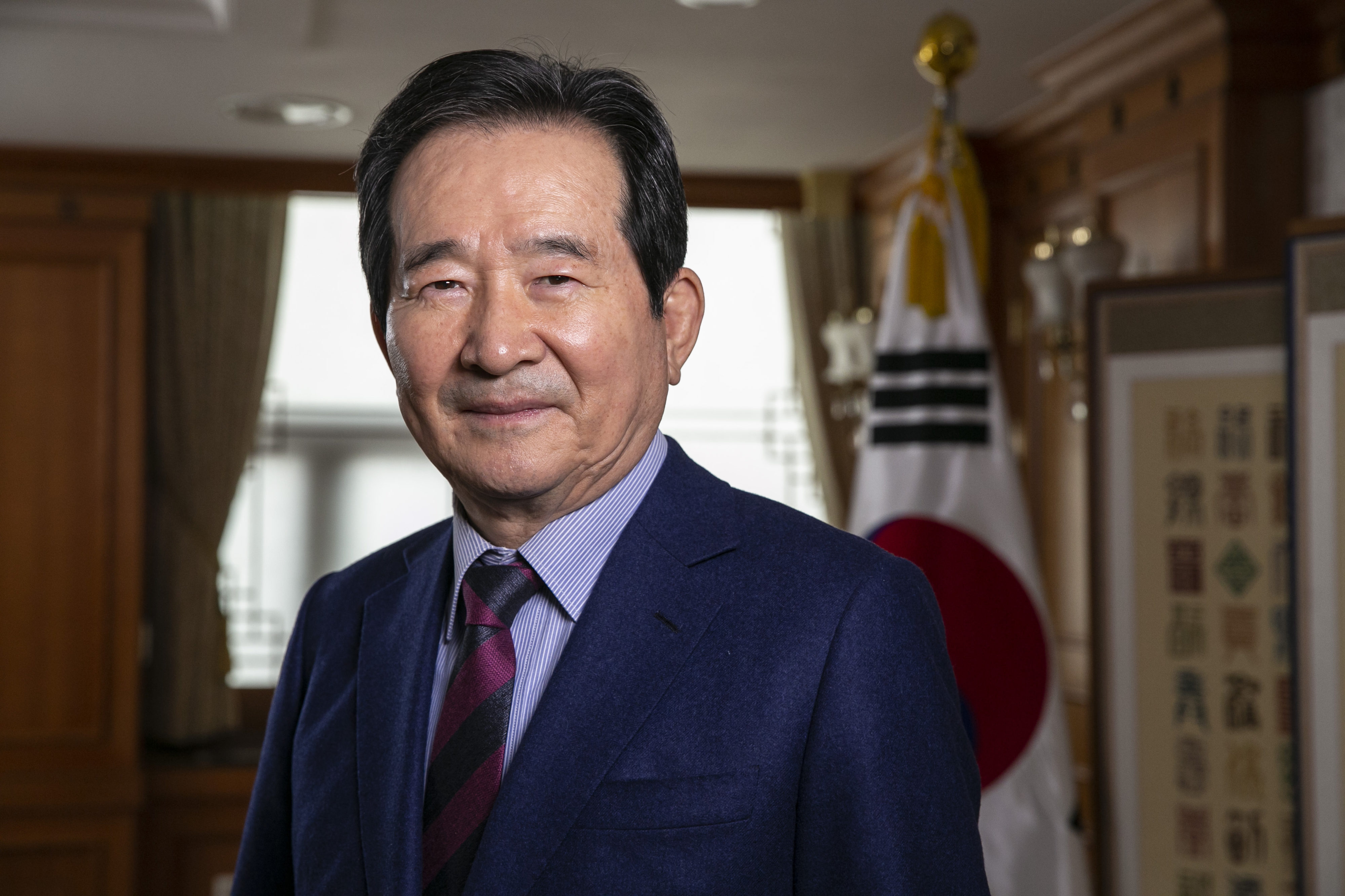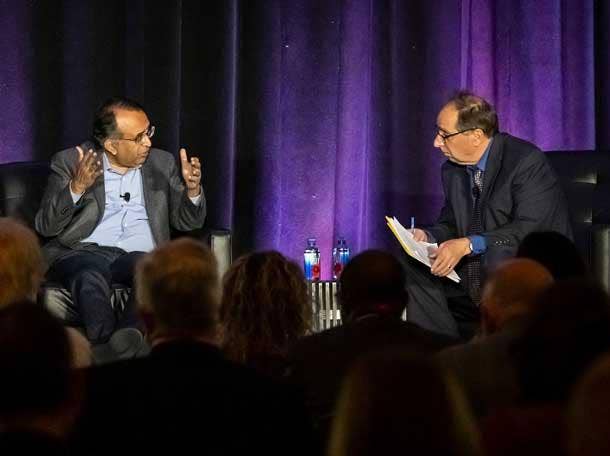South Korea: Prime Minister Han Steps Down To Pursue Presidency

Table of Contents
Prime Minister Han's Reasons for Resignation
Prime Minister Han's resignation, announced unexpectedly, has left many questioning his motivations. While the official statement cited a desire to serve the nation in a broader capacity, deeper political analysis suggests a strategic calculation.
-
Official Statement: The official statement released by Prime Minister Han emphasized his unwavering commitment to the South Korean people and his belief that he could best serve their interests as President. However, this explanation alone doesn’t fully account for the timing and dramatic nature of his resignation.
-
Political Motivations: Many political analysts believe Han's resignation stems from a calculated assessment of his chances in the presidential race. Running as an incumbent Prime Minister might have presented certain limitations, while a fresh start as a non-incumbent candidate could potentially resonate more strongly with the electorate. His move may be a calculated strategy to avoid potential pitfalls associated with the current government's policies and gain a stronger foothold with undecided voters.
-
Impact on Public Perception: The immediate impact on public perception is varied. Some praise his dedication to public service, while others criticize his perceived ambition. His decision might elevate his profile and provide a platform for campaigning free from the constraints of his previous role. However, it could also alienate those who valued his role as Prime Minister.
-
Strategic Timing: The timing of Han's resignation is undeniably significant. His decision could be seen as a carefully orchestrated move to maximize his advantage in the upcoming election campaign, allowing him to focus his resources and energy on his presidential bid.
Impact on the Ruling Party and Upcoming Elections
Prime Minister Han's resignation has triggered significant consequences for the ruling party and the upcoming elections. The political fallout is likely to be substantial and far-reaching.
-
Impact on Ruling Party Chances: Han's departure leaves a significant power vacuum within the ruling party. His popularity and influence were undeniable assets, and his loss could severely impact their chances in the upcoming elections. The party will need to quickly select a successor and rally support, a task complicated by internal power struggles.
-
Internal Power Struggles: The resignation is expected to trigger intense infighting within the ruling party as various factions vie for control and influence. This internal struggle could further destabilize the party and hinder its ability to mount an effective campaign.
-
Shifts in Political Alliances: Han's move may cause a realignment of political alliances. Other political figures might seek to capitalize on the situation by forming new coalitions or consolidating existing ones to challenge Han or other candidates.
-
Impact on Voter Sentiment and Predictions: The uncertainty created by Han's resignation is likely to impact voter sentiment. The presidential election is now highly unpredictable, with several potential candidates emerging and the overall political landscape becoming increasingly volatile.
Public Reaction and Media Coverage
The public reaction to Prime Minister Han's resignation has been mixed, with intense debate playing out in the media and on social media platforms.
-
Public Opinion and Social Media: Initial reactions on social media revealed a wide range of opinions, from support for Han's ambition to criticism of his timing and potential disregard for current government responsibilities. Public opinion polls will be crucial in gauging the impact of his decision on voter sentiment.
-
Media Coverage and Influence: The mainstream media has covered the event extensively, providing various perspectives and analyses. The narrative shaped by media coverage is likely to play a significant role in influencing public perception and shaping the course of the election.
-
Political Viewpoints: The reaction from different political viewpoints has been sharply divided, with some praising Han's boldness, while others criticize his abandonment of his current responsibilities. The diverse range of opinions reflects the deep political divisions that exist within South Korean society.
-
Expert Commentary: Prominent political analysts have weighed in, providing insightful commentary on the potential implications of Han's move. These analyses have helped to frame the debate and illuminate the intricacies of the situation.
Potential Challenges for Han's Presidential Bid
Despite his popularity, Prime Minister Han faces numerous challenges in his quest for the presidency.
-
Campaign Funding and Support: Securing sufficient funding for a presidential campaign is a significant hurdle. Building broad-based support across different segments of the population will also require a considerable effort.
-
Political Platform and Voter Appeal: The appeal of Han’s political platform and his ability to connect with voters will be crucial to success. His campaign strategy will be crucial in determining how he positions himself within the political landscape.
-
Opposition Parties' Strategies: Opposition parties will likely develop strategies to counter Han's candidacy. They may use his past actions and policies to criticize his campaign and challenge his claims.
-
Electoral Reform Implications: Any ongoing electoral reforms could significantly impact the playing field and potentially affect Han's chances of success.
Conclusion
Prime Minister Han's resignation to run for president marks a pivotal moment in South Korean politics. His decision has triggered significant consequences, including internal party struggles, a shift in the political landscape, and considerable media attention. The upcoming election is now poised to be highly competitive and unpredictable. The impact of his decision on the ruling party's prospects, the formation of new political alliances, and ultimately, the outcome of the election, remains to be seen.
Call to Action: Stay informed about the unfolding developments in South Korea's presidential race. Keep checking back for updates and analyses on Prime Minister Han’s campaign and the broader implications of this significant political shift in South Korea. Learn more about the South Korean Presidential Election and Prime Minister Han’s candidacy by following our updates.

Featured Posts
-
 April 17 2025 Daily Lotto Check The Winning Numbers
May 02, 2025
April 17 2025 Daily Lotto Check The Winning Numbers
May 02, 2025 -
 Lisa Ann Keller Obituary Remembering A Life Well Lived In East Idaho
May 02, 2025
Lisa Ann Keller Obituary Remembering A Life Well Lived In East Idaho
May 02, 2025 -
 Fortnite Update 34 21 Server Downtime New Content And What To Expect
May 02, 2025
Fortnite Update 34 21 Server Downtime New Content And What To Expect
May 02, 2025 -
 Six Nations Rugby France Reigns Supreme Englands Victory Scotland And Ireland Struggle
May 02, 2025
Six Nations Rugby France Reigns Supreme Englands Victory Scotland And Ireland Struggle
May 02, 2025 -
 Broadcoms Proposed V Mware Price Hike A 1050 Increase For At And T
May 02, 2025
Broadcoms Proposed V Mware Price Hike A 1050 Increase For At And T
May 02, 2025
